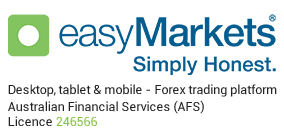Understanding the nuances of the market requires experience and training, but is critical to success. In fact, ongoing learning is as important to the veteran trader as it is to the beginner. Through training, observation and practice, you can learn how to identify and understand where the market is going, and what controls that direction.
Education: essential for the novice investor
Education is often taken lightly. However, due to the complexities of the markets, new investors must review all tools at their disposal to improve their understanding of this profit opportunity. Whether one is a novice investor or an experienced trader in another market, it is essential to examine all tools available for self education. These days there are a number of solutions that help investors move quickly along the learning curve.
Education: Basics
Education or training courses can be broadly divided into two categories:
Online courses: This mode of teaching is basically conducted by instructors who provide various sources of learning, including eBooks, PowerPoint presentations and trading simulators. For a beginner, this form of education is invaluable. People can self-pace the teaching and can learn from the comfort of their own homes. This is also the more inexpensive form of education. The downside here is that a personal teacher is not available at one’s disposal and one-on-one discussions may not take place.
Individual training: This mode of teaching is much more specific and more appropriate for traders with a basic understanding of any markets. In this form of education, an assigned mentor (usually a successful trader) spends most of the time teaching via the placement of actual trades. These mentors are also likely to review strategies and risk management techniques related to the market.
Education: what to avoid
It is essential to stay away from presumptuous claims. Avoid getting carried away by courses that make bold claims like “guaranteed profits” and “no way to lose,” since no one knows for sure what would happen in any market.
Education: what to consider
There are two things that an investor should consider in choosing an education provider:
Reputation: an investor/trader needs to gauge the reputation of the course provider. Therefore, it is advisable to select courses that have established track records.
Certification offered: established training courses are certified by a regulatory body or a financial institution. Some of the most popular regulatory boards that certify courses in the US are:
- Chicago Board of Trade
- Securities and Exchange Commission
- Commodity Futures Trading Commission
- Chicago Mercantile Exchange.
Although education cannot be completed merely via trading tutorials, these are invaluable sources of information. These tutorials help learn the basic principles of trading, so that an investor can be better positioned in the market.
easyMarkets Education
easyMarkets understands that educated traders will stay with them longer, so they take the subject of training their customers seriously. Their online platform has a Learn Trading centre where customers can find a library of articles explaining how to trade on their platform, a glossary of hundreds of trading terms and an eBook Guide to Trading to download. One-on-one training via phone or their online Chat provides the personal touch that few other platforms offer. And for the more experienced trader, personal analyst offer even more advanced information and training.






